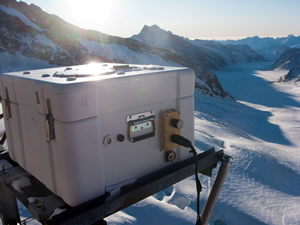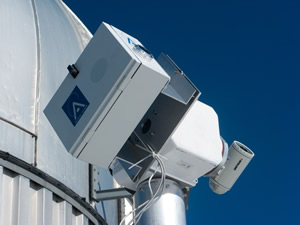|
~
|
The NDACC UV-VIS Working Group
The NDACC UV-VIS Working Group (UVVIS-WG) consists of about 10 research institutes and University labs specialized in UV-Visible spectroscopy and atmospheric gas retrieval. All together they operate over 30 UV-visible spectrometers that are deployed worldwide from pole to pole. With an emphasis on the long-term evolution of the ozone layer, these instruments have provided more than two decades of regular measurements of total column amounts of O3, NO2, BrO and OClO retrieved from zenith scattered sunlight DOAS (Differential Optical Absorption Spectroscopy) observations. More recently the focus of the UVVIS-WG has been enlarged to also encompass the monitoring of several key tropospheric gases by means of the Multi-AXis DOAS (MAXDOAS) technique. This technique, which utilizes different viewing directions in addition to zenith, has been developed for detecting absorbers in the lowest few kilometers of the atmosphere. Based on multiple-scattering radiative transfer modelling the inversion of MAXDOAS measurements allows retrieving the vertical distribution of a number of tropospheric species like NO2, HCHO, BrO, CHOCHO, as well as aerosols. NDACC stations equipped with MAX-DOAS instruments are growing in number and the operational generation of tropospheric data products is being developed for progressive implementation in NDACC. Data evaluation and quality assessment procedures are under the responsibility of the NDACC UVVIS-WG. These are essential for ensuring the long-term quality and consistency of the data sets. Within this objective, field instruments and algorithms intercomparison campaigns are organized on a regular basis since 1992. The NDACC UVVIS-WG also provides recommendations and data analysis tools to foster the harmonization of the network data series. Representatives of the UV/VIS Working Group in the NDACC Steering Committee :
Dr Michel Van Roozendael
Dr Karin Kreher |




